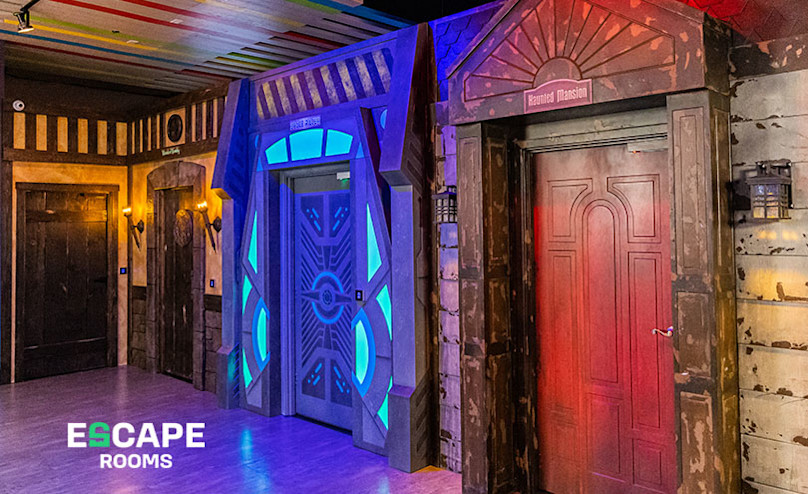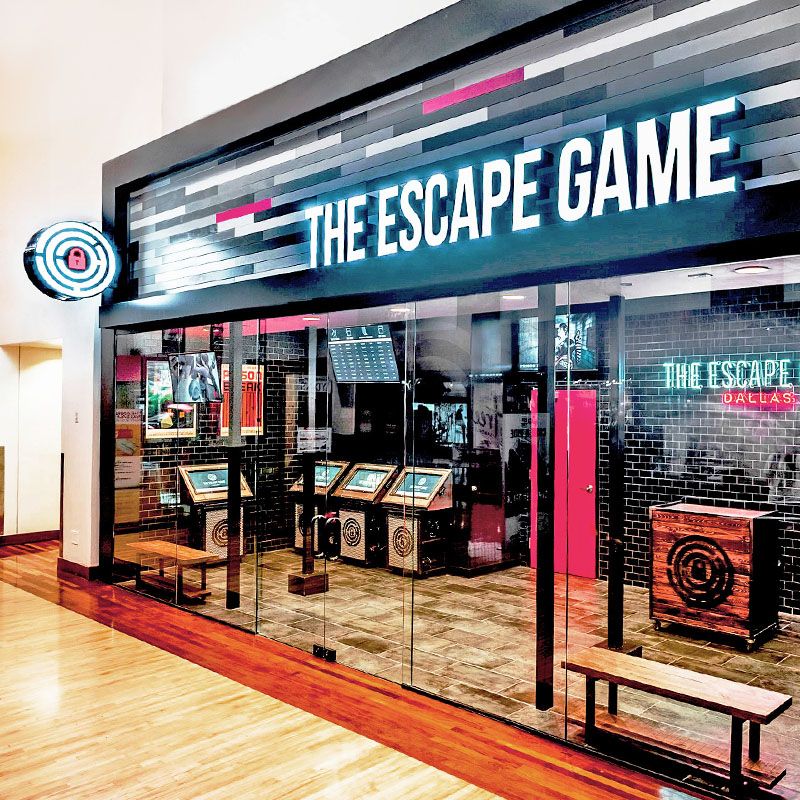Escape Room in Minneapolis-- A Perfect Task for Any Type Of Occasion
Escape Room in Minneapolis-- A Perfect Task for Any Type Of Occasion
Blog Article
Team Methods: Exactly How to Collaborate Successfully in an Escape Space
Navigating the complexities of a retreat room requires more than mere enthusiasm; it requires a well-coordinated method based in clear interaction, tactical role projects, and proficient time administration. Groups need to actively listen per participant's understandings, appoint duties that straighten with individual toughness, and keep regular check-ins to make certain emphasis and prevent redundancy. By cultivating an environment that values cohesion and adaptability, teams can considerably increase their effectiveness and success rates. The nuances of these approaches can transform the experience, yet just how exactly can they be carried out to take full advantage of the capacity for success?
Establish Clear Communication

To help with clear interaction, it is essential to assign a central point of get in touch with for information circulation. Quick, concentrated updates from each group member can keep the team informed without frustrating them with info.

Assign Duties Purposefully
While clear communication sets the foundation for reliable teamwork, appointing duties purposefully ensures that each staff member's strengths are made use of properly. In a getaway room scenario, the time-sensitive and complex nature of difficulties demands an efficient method to task delegation. By identifying and leveraging private proficiencies, groups can enhance their analytical capabilities and enhance overall performance.
First, examine the special abilities and attributes of each individual. For example, somebody with a keen eye for detail may master discovering surprise things, while a sensible thinker can be much better matched to solving problems - best escape room. It's similarly important to have a leader who can look after development, take care of the timeline, and make definitive phone calls when necessary. This function commonly needs solid organizational and interpersonal abilities.
2nd, guarantee that roles are adaptable and versatile. As new challenges arise, the group should have the ability to pivot, reapportioning tasks as required. This flexibility aids preserve energy and avoids bottlenecks that can take place due to rigid role jobs.
Ultimately, a tactical approach to role assignment not just makes best use of the strengths of each employee however also cultivates a cohesive atmosphere, driving the team towards a successful retreat.
Use Diverse Abilities
Recognizing and using the diverse abilities within your team can substantially raise your efficiency in a retreat room. Each staff member brings unique staminas to the table, and properly leveraging these capacities can accelerate analytic and improve total efficiency. A group member with strong logical skills might excel at understanding intricate codes or patterns, while an additional with eager observational capabilities might swiftly find covert hints that others might overlook.
Encourage group participants to voice their insights and concepts quickly, guaranteeing that all prospective remedies are considered. In addition, designating tasks that line up with each member's toughness can avoid bottlenecks and make certain that progression is continual.
Furthermore, diversity in skills typically equates to variety in believing styles, which is vital in a getaway room setting. While some difficulties may require rational reasoning and accuracy, others might take advantage of imaginative and association of ideas. By recognizing and leveraging this diversity, groups can address a wider range of challenges better, thus boosting their opportunities of a successful getaway.
Manage Time Effectively

First, designate preliminary mins for a fast survey of the space. Identify noticeable puzzles and divide jobs based on group members' strengths, guaranteeing that nobody is still. Establish interior time checkpoints to review progression periodically; for circumstances, aim to have half the puzzles addressed by the mid-point of the game. This practice can assist keep the group focused and avoid time from slipping away undetected.
Additionally, avoid one-track mind. If a puzzle is taking as well long, turn staff member or proceed to one more challenge, returning later on with fresh viewpoints. Communication is extremely important-- keep everyone updated on resolved puzzles and remaining jobs to prevent redundant initiatives.
Lastly, use any type of tips or hints moderately yet purposefully - best escape room. Understanding when to request for assistance can save useful time. By adhering to these time monitoring concepts, teams can significantly boost their opportunities of an effective and pleasurable retreat room experience
Debrief and Reflect
Reflection is a vital facet of team advancement and enhancement in the context of retreat rooms. As soon as the obstacle is finished, whether successfully or site otherwise, it is vital for the group to take part in an organized debriefing session. This procedure enables team members to examine their efficiency, determine toughness, and identify locations for enhancement.
Start the debrief by reviewing what went well. Highlight particular instances of effective communication, analytical, and partnership. Recognizing these positive habits reinforces them and urges their repeating in future obstacles.
Next, address the obstacles ran into. Review minutes of complication, miscommunication, or ineffective approaches. Encourage an open and positive dialogue where group members can share their perspectives without anxiety of objection. This cultivates a society of continuous enhancement and knowing.
Verdict
In verdict, successful partnership in a retreat room is based upon clear communication, critical duty tasks, the efficient utilization of diverse skills, and skillful time monitoring. Routine check-ins and structured debriefings are necessary for keeping emphasis and fostering constant renovation. By developing a natural and flexible team setting, the likelihood of effectively addressing challenges and accomplishing the purpose of escaping the room her explanation is substantially enhanced. This strategy not only makes certain success yet additionally advertises collective development and understanding.
Report this page